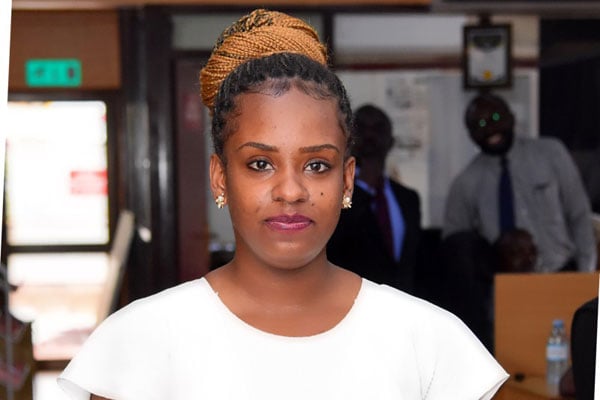Prime
Museveni says regional, state courts can co-exist

President Museveni arrives at the 2nd Annual East African Court of Justice Conference in Kampala. PHOTO | DAVID LUBOWA
What you need to know:
- The President, who was closing a three-day conference on the East African Court of Justice in Kampala, invited stakeholders to borrow a leaf from the decentralisation of land in Uganda.
President Museveni has urged judicial officers and lawyers in the East African region to show good judgment in deciding which cases should be heard by the East African Court of Justice or respective member state judiciaries.
The President, who was closing a three-day conference on the East African Court of Justice in Kampala, invited stakeholders to borrow a leaf from the decentralisation of land in Uganda.
“If you mishandle integration, it can backfire. I think this is really in both your area and my area. It’s both an issue of strategy but also an issue of legality,” Mr Museveni said, adding: “When we came into power, some of these people wanted to come and grab our land … so I detected and I said the land is no longer a Uganda matter; it’s the district matter to handle their own land (the district land board). The Uganda Land Commission would only handle the land of government like the ranches.”
The President also re-echoed the need for regional integration, especially in the area of economics and security. On the latter, he cited the ousting of Idi Amin orchestrated by “Mwalimu Nyerere and a few others.”
He also pointed out Somalia, which “would have been taken over by the al-Shabaab, but we stopped them.”
Somalia recently renewed its interest in joining the East African Community. This came against the backdrop of the DR Congo pushing the number of member states in the community to seven.
Speaking at the same conference, Chief Justice Alfonse Owiny-Dollo appealed to judiciaries in the region to ensure that rule of law prevails.
“I appeal to the leaders of the community to ensure that we have in each member state robust and effective judiciaries that can give meaning to the unity that comes with the community in equal measure,” Owiny-Dollo said.
Likewise, Justice minister Norbert Mao, asked the judges in the region to always factor in the traditional beliefs of their citizens while making their judgments.
“I urge our distinguished judicial officers while making your decisions, don’t forget about our context,” Mr Mao said, adding: “I have witnessed cases where an accused person has changed his plea on account of the strength of the traditional belief. One such case was when the villagers came to court and said they would go back home and settle the matter traditionally, forcing the accused person to change his plea to guilty.”
In her capacity as the Minister for East African Affairs, Ms Rebecca Kadaga, listed the topics that the judicial officers had been trained in during the three-day conference. These include issues on regional standards of freedom of expression, access to information, safety of journalists and the legal challenges related to the Internet.
Ms Kadaga also decried protectionism in certain professions where she said a number of citizens within the region are unable to practice their profession effectively in other sister states.
Ms Kadaga, who doubles as the first deputy prime minister, expressed her pleasure to have the regional court sit in Kampala. Starting next month, the court will hear regional cases and pass judgments from the Ugandan capital.





